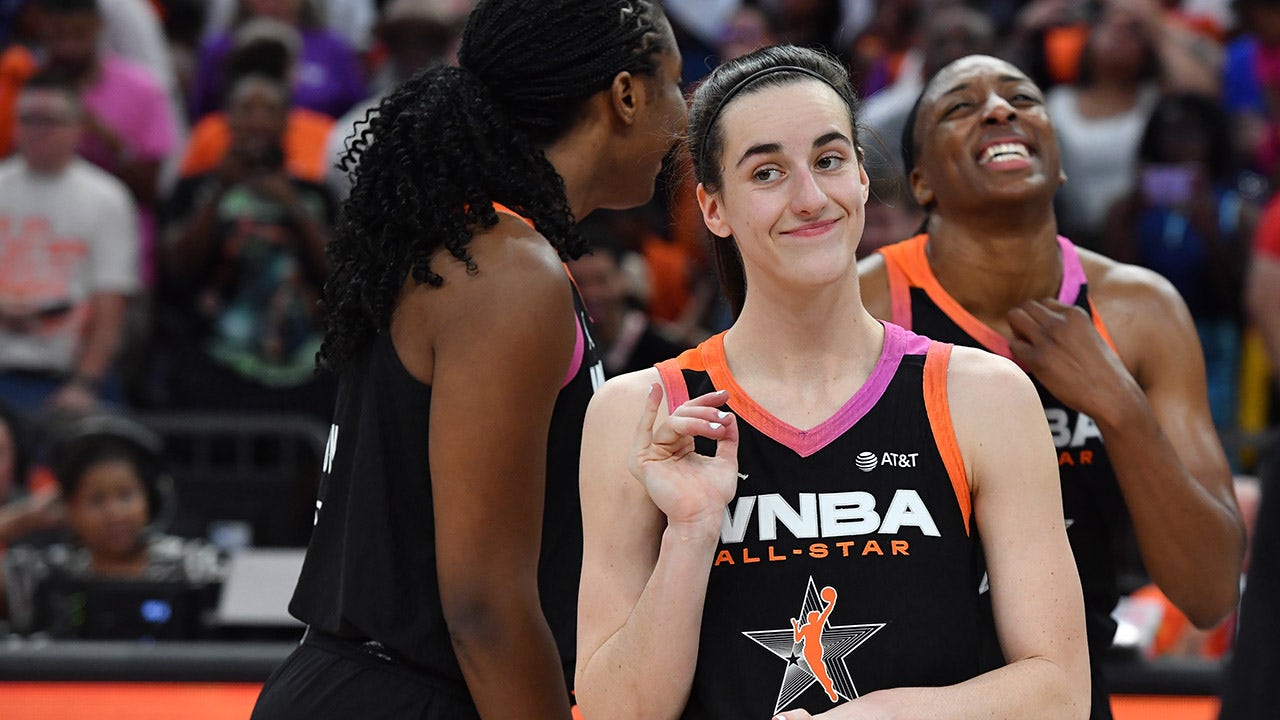Donovan Bailey tells of early struggles in ‘Undisputed’, 1996 Olympic champion’s autobiography

Undisputed
by Donovan Bailey
NO STORY WOULD BE complete without adversity. In my sprinting career, my first bout with something of that nature occurred in 1991. I was humbled on the track for the first time in my life. Hell, I’ll keep it 100 per cent real with you. It was the first time between the white lines that I was scared.
I was representing Canada at the Pan American Games, which were being held in Havana, Cuba. This was my first dance on such a grand stage since I had been a kid at Champs. Prior to these Games, I had mostly sprinted in regional competitions that received little fanfare. I could go out on the track and do my thing without ever having to think about expectations or the crowd. When I arrived at the brand-new Estadio Panamericano in Havana, I immediately felt a different level of gravitas. The stadium seated over 30,000, and as my name was announced on the sound system ahead of the 100-metre final, I looked up into the sea of spectators and was shook. I had qualified in front of an empty stadium. But now, I was mesmerized by the sheer number of people there for the final and sunk into a dazed state until, suddenly, I heard three words that set me back to reality.
“On your marks.”
It was as if I was in a trance. I didn’t even hear “Get set.” The gun went off.
“Oh my God,” I muttered to myself.
This was actually happening. I glanced up and saw all the other sprinters ahead of me. They had left me in their dust, literally. It seemed like I was miles behind them. At that point, my muscle memory kicked in, mixing with the adrenalin, and I began to take flight. However, 100 metres doesn’t give you much space to make up for your mistakes. It was too late. I finished in eighth place with a time of 10.76 seconds. I was steaming mad by the time I crossed the finish line. I got down on my knees and pounded the track with my fists. I was more pissed than sad. Very few people had seen me angry till that point, but I let my frustration show. I was upset at myself because I felt that I had screwed up a great opportunity. I’d earned my right to be in this event on this enormous stage, yet I was not prepared for the moment. The athlete who finished in first had done so in a time that I had made handily just a few weeks ago, so it wasn’t a question of my ability. It wasn’t my body that had lost me this. It was my head.
I knew that the ramifications of this were dire, too. It was going to affect how national team decision-makers perceived me. I hadn’t come up through the Team Canada system and was something of an unknown commodity to the coaches and staff. My ability to match or even beat the best sprinters in the Canadian system meant the system in which all these people had invested their best efforts had missed something — unless I wasn’t as good as my previous results indicated. On the track in Havana, I’d had a chance to prove I was for real in elite international competition and instead caused my doubters to lean into their prejudice against the outsider.
I salvaged my reputation somewhat during those Pan Am Games by anchoring Canada to a silver medal after I’d received the baton in fifth place during the 4×100-metre relay final. However, to me, the damage was done. Lesson learned. I was going to make sure that it never happened again.
The 100-metre sprint track is a perfectly straight line. My journey in sprinting was anything but linear. New challenges awaited me in 1992. For one, I started to collect injuries like they were trading cards. There were bone spurs, hamstring issues and then, most significantly, a torn left quadricep. For the most part, I pushed through the pain. As the competition became tougher, my confidence was becoming a liability. I was treating my body like I was an immature high schooler — I thought I was invincible and could beat all those other guys even though I wasn’t in peak shape. I didn’t yet appreciate that when pushed to this level, my body — any athlete’s body — needed maintenance. That blown quad hit me like a hard slap from reality.
It came at the most inopportune time, too: at the trials to make the Canadian team that would compete at the 1992 Olympics in Barcelona. I won my semifinal and clocked a 10:23, only .02 seconds behind the fastest time. But in that race I tore my left quadricep. Supported by the physio team, I petitioned the selection committee and head coach to excuse me from the final. Running with a blown quad is a bad idea, and I’d established the second fastest time on the team that day anyway. There was no need to prove further that I belonged on the team. It should have been that simple. But as I’ve seen so many times, Canadian sports bureaucracy never makes it easy. I was told that in order to make the team, I had to run the final.
Even after one year in the national program, I constantly felt like I was running into a massive headwind with team officials. Against the advice of the medical people, I decided to try. We had an hour and a half to get my leg ready. It was swollen and stiff. They massaged it, iced it and stretched it. In the final I lasted 15 metres, but the effort increased the tear, leaving a huge hole in my quadricep that would bother me for years to come (I can feel it to this day). I had to pull up.
I knew immediately that I’d made the injury worse. I was disappointed, and I was angry. My semifinal time was on the board for everyone to see. I had proven what I could do when up against the other Canadian sprinters. But the officials weren’t going to cut me any slack, and now I had a serious injury to overcome.
I got to work in rehab, with my sights still set on Spain. If I could race again before the Olympics and post a winning result, the officials could still put me on the team for Barcelona. The pain in my left thigh was the most excruciating pain I had ever experienced, and rehabbing it was mentally draining. I hated it. Take ice baths, for example. That was prescribed to aid in the muscle repair, and like most Caribbean people I absolutely despise the cold. Every single time I dunked my body into that frigid water, I’d unleash a bevy of cuss words. Active release was another dreaded component. A physiotherapist would be jamming their elbow into my leg with the intention of breaking up scar tissue. Take your thumb and push into different areas of one of your calves until you find a tender spot. Then, once you locate it, apply pressure as hard as you can.
It hurts, right? Now, imagine that pain times 100. That’s what it took to get me through the injury.
I was able to show fitness ahead of Barcelona, hitting the speed I’d achieved in the semi-final at trials. However, the Team Canada decision-makers still opted to leave me off the team — no explanation given. I sat at home in Oakville watching my contemporaries compete in those games, and it stung. I had consistently beaten almost all of those guys in the 100-metre. I had also been left off the world championship track team the previous year, despite posting better times than the athletes selected ahead of me. These decisions from Canadian officials were beginning to add up in my head. I wondered if I was being slighted and worried that my name had been tainted after the mishap in Cuba. That provided me with plenty of fuel, because I had stopped thinking of myself as a guy who just happened to stumble into the periphery of the track and field world. A fire was growing in my belly, and I genuinely felt that I deserved more. I wanted to get back at the bureaucrats for thinking I didn’t belong on those teams, and those feelings of resentment didn’t fade.
Undisputed is scheduled for Publication October 31, 2023.
Undisputed Donovan Bailey, Random House Canada, 272 pages, colour images, hardcover $35.00




